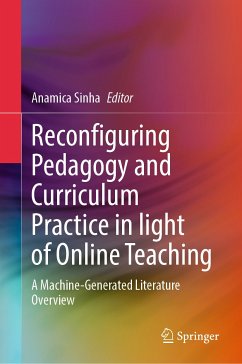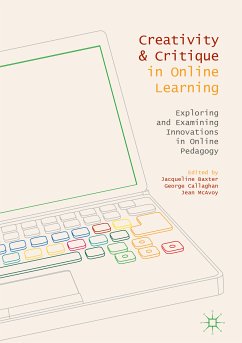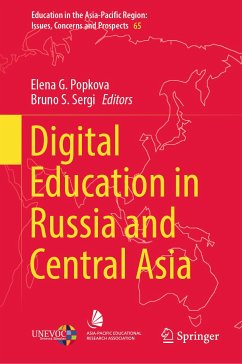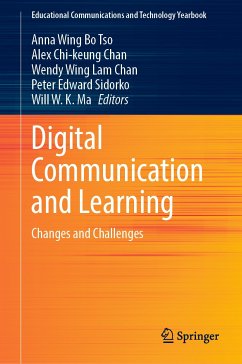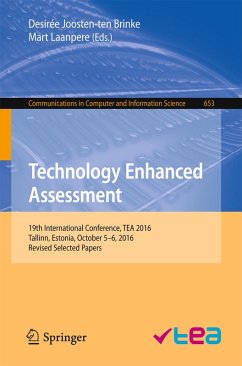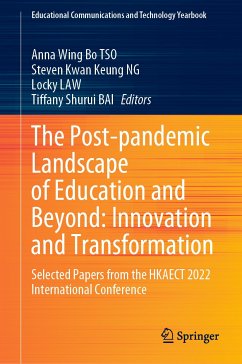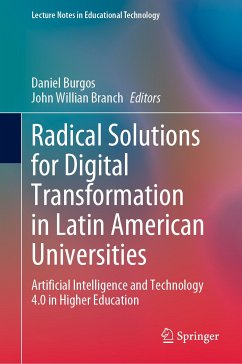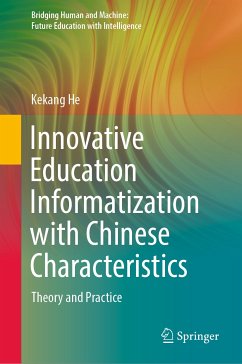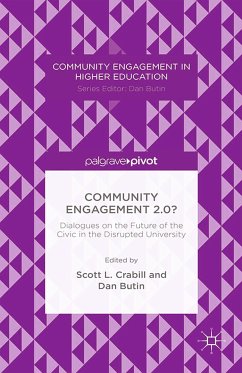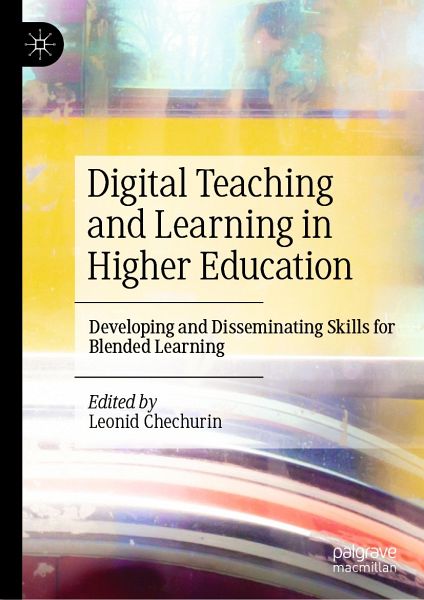
Digital Teaching and Learning in Higher Education (eBook, PDF)
Developing and Disseminating Skills for Blended Learning
Redaktion: Chechurin, Leonid
Versandkostenfrei!
Sofort per Download lieferbar
88,95 €
inkl. MwSt.
Weitere Ausgaben:

PAYBACK Punkte
44 °P sammeln!
This book explores the challenges and opportunities faced by universities as they move to digital education. The COVID-19 pandemic as well as students' increasing levels of comfort with digital technology has accelerated the digitalization of learning and teaching, even among teachers who are less confident. The editor and contributors ask how successful digital teaching materials can be developed, what are the unique benefits of this type of teaching and how it can be linked with industry and society so as to better aid the development of student learning. The book maintains that the digital ...
This book explores the challenges and opportunities faced by universities as they move to digital education. The COVID-19 pandemic as well as students' increasing levels of comfort with digital technology has accelerated the digitalization of learning and teaching, even among teachers who are less confident. The editor and contributors ask how successful digital teaching materials can be developed, what are the unique benefits of this type of teaching and how it can be linked with industry and society so as to better aid the development of student learning. The book maintains that the digital educator should be able to orchestrate diversity in the supply of digital teaching materials and project-based learning to meet the needs of students and prepare them for their future careers. Leonid Chechurin is Professor for Industrial Engineering and Management Unit of School of Engineering Science or Lappeenranta-Lahti University of Technology, FINLAND.
Dieser Download kann aus rechtlichen Gründen nur mit Rechnungsadresse in A, B, BG, CY, CZ, D, DK, EW, E, FIN, F, GR, HR, H, IRL, I, LT, L, LR, M, NL, PL, P, R, S, SLO, SK ausgeliefert werden.



